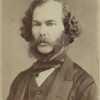
Scott C. Thompson, “On G. H. Lewes’s Problems of Life and Mind, 1874—79″
In Problems of Life and Mind (1874—79), George Henry Lewes posits his theory of “Scientific psychology,” which is founded on a synthesis between the objective study of the mind practiced in physiology and the subjective study of consciousness practiced in philosophy. Problems is an important text because it is one of the last quintessentially “Victorian” studies, a wide-ranging work produced before the full establishment of disciplinary boundaries. It combines a variety of discourses—including philosophy, physiology, psychology, evolutionary biology, and sociology—in order to establish a comprehensive methodology for the scientific study of consciousness. This entry positions Problems into its nineteenth-century psychological and philosophical tradition, as understood by Lewes; provides a summary of the overarching argument of Problems; and outlines the contributing sub-claims made in each of its discrete series.
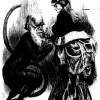
Jonathan Smith, “The Huxley-Wilberforce ‘Debate’ on Evolution, 30 June 1860”
The “debate” over evolution between T. H. Huxley and Bishop Samuel Wilberforce at the 1860 meeting of the British Association for the Advancement of Science in Oxford is an iconic story in the history of evolution and, indeed, in the history of the conflict between science and religion, second only to Galileo’s troubles with the Vatican. Huxley, the traditional account has it, vanquished Wilberforce by responding to an insulting question about his own ancestry with a masterful rejoinder that exposed the Bishop’s ignorance of science and ungentlemanly behavior. Historians have shown that this traditional account is biased and distorted, a construction many years after the fact by the Darwinians and their allies, yet it continues to live on, even in literary studies. Reconstructing the Huxley-Wilberforce encounter, the contexts in which it took place and what is and is not known about it, yields an understanding of the relationship between religion and science in the Victorian period that is fuller and more complex than the traditional “conflict” model.
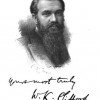
Daniel Bivona, “On W. K. Clifford and ‘The Ethics of Belief,’ 11 April 1876”
The mathematician W. K. Clifford was the youngest and possibly most controversial member of the Metaphysical Society, a group originally formed by Alfred Lord Tennyson and some close friends. Lasting from 1869 to 1880, the Society ultimately brought together a great variety of intellectuals, writers, philosophers, scientists, poets, journal editors, politicians, and Church figures of the era for vigorous debates on metaphysical topics. A pioneering promoter and translator of the non-Euclidian geometer Riemann, Clifford anticipated Einstein’s discovery that gravity was not a mysterious force of bodies but an effect of curved space, but it was his withering criticism of metaphysical claims before the Metaphysical Society – in particular, his attack on the morality of believing on insufficient evidence, an argument which was delivered two years after he first joined the group and later published as the essay “The Ethics of Belief” – that marked him as the most controversial proponent of the agnostic position in the late Victorian period. When he died at the young age of 33 in 1879, Clifford left a legacy of important unpublished scientific work and a number of impressive published essays in which he offered both a very compelling critique of the ethics of metaphysical commitments and a powerful argument, inspired by Darwin’s Descent of Man, in favor of the claim that ethics derive from evolutionary history rather than descending from an immaterial God.
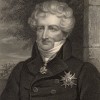
Martin Meisel, “On the Age of the Universe”
The Charles Darwin-inspired debate over the Age of the Earth that pitted contemporary Physics against the theory and practice of contemporary Geology was intimately tied to recent unsettling projections on the thermodynamic fate of the universe. The leading voices in the debate were William Thomson, later Lord Kelvin, and Thomas Henry Huxley, Darwin’s most able champion. The argument—resolved only in the next century—has exemplary value as an intractable dissonance between two vigorous and well established, but not entirely secure scientific disciplines. And its content laid some of the groundwork for the pessimism that qualified the cult of progress and the whiggish habits of cultural and material complacency towards the end of the century.
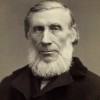
Bernard Lightman, “On Tyndall’s Belfast Address, 1874”
John Tyndall’s Belfast Address at the British Association for the Advancement of Science in 1874 touched off a heated controversy over his alleged materialism. His enemies expanded their criticism of his materialism to include Victorian scientific naturalists. An analysis of the Belfast Address and the controversy surrounding it provides insight into the status of Victorian scientific naturalism during the 1870s.
